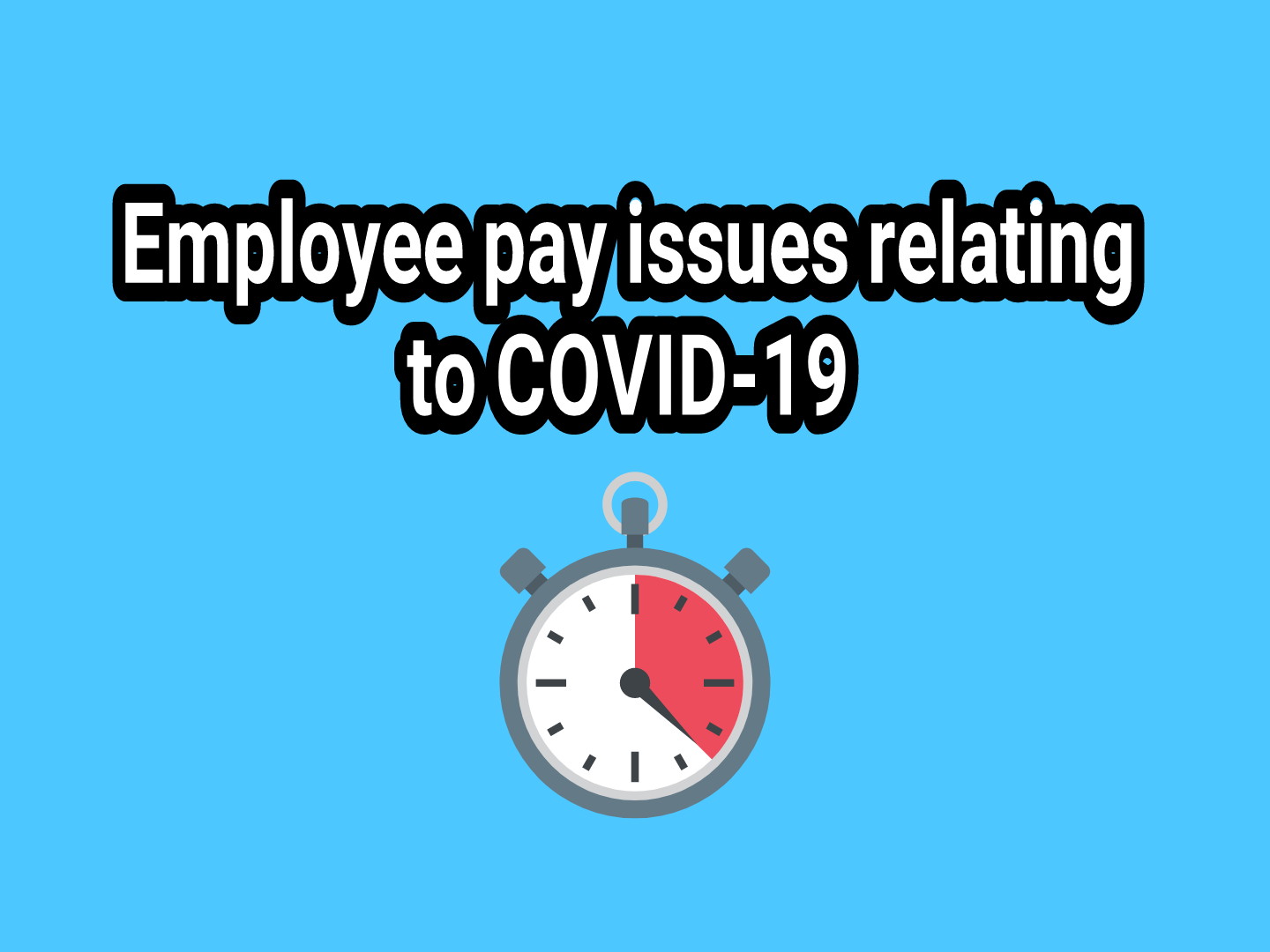- Free Consultation: (631) 352-0050 Tap Here to Call Us
Am I Being Paid Properly During Covid?

Federal and New York State laws require that employees be paid minimum wage and overtime. During “normal” times, employers far too frequently violate these laws. Sometimes, employers intentionally skirt wage laws to avoid paying the high costs associated with employee wages. Other times, however, employers try to comply with the law, but they fall into legal pitfalls by misclassifying employees or making other mistakes.
With Covid-19, employees are working from home or being subject to new workplace requirements, such as health screenings, before starting work. These new workplace realities, employers may stumble into new pitfalls concerning properly paying employees. Today’s Long Island employment law blog discusses situations where employers may be improperly paying employees and what employees should do if are they are not being paid correctly.
Non-exempt hourly employees must be paid for all time spent working. Generally, this is not a complicated issue. Most employees come into work and clock in or “punch in.” This records the time the employee reported in for work. After clocking in, the employee starts work.
At the end of the day, the employee finishes work and “punches out” or clocks out. This records the time the employee has stopped working and left the workplace for the day.
But, what happens when an employee is at home and doesn’t have the opportunity to punch in and out at the workplace’s time clock? Some employers have methods for remote workers to record work time. Employers may use phone apps, websites, or computer applications to track employee time. All work time, however, is compensable. For example, if an employee decides to check work emails while eating breakfast and before “officially” logging in for the day, that time may be compensable and an employer may be liable for not paying the employee for that work time.
Employees reporting for work may also be missing out on compensable work time. With COVID-19, many employers are requiring that employees undergo medical screenings, temperature checks, and/or health questionnaires, before entering the workplace. Time spent waiting in lines and undergoing these safety measures, may be considered work time, meaning employers may be required to pay employees for this time.
Further, if employees regularly work forty hour work weeks, but the time spent undergoing pre-work medical screenings takes the workweek over forty hours per week, the employer may be liable for overtime wages in addition to the employee’s regular hourly wage.
Unpaid wage and overtime claims against employers can be costly. If an employee proves that an employer did not pay proper wages, the employer may be required to pay the employee actual damages. This means the employer must pay the employee all the wages which should have been paid, but were not. In New York, the statute of limitations for unpaid wage claims is six years, so employers may be required to pay back as much six years of unpaid wages.
In addition to actual damages, New York law allows employees to recover liquidated damages of 100%. This essentially means that employers are liable for twice as much as the actual damages. In other words, if an employee proves she is owed $10,000 in wages, the employer may be liable for $20,000 after including liquidated damages.
New York and federal law also allow victims of unpaid wages to recover attorneys fees. This means that if the employee proves that the employer violated the wage and hour laws, the employer may be required to pay the employee’s lawyer for the hours worked on the case.
Employers who violate wage and hour laws may also be liable under New York’s wage theft prevention act. The WTPA requires employers to provide employees with accurate wage statements. When employers fail to properly pay employees, some courts have determined that the wage statements issued to the employees are not accurate and thereby violate the WTPA. The WTPA provides for statutory damages of up to $5,000.
COVID-19 has created new challenges in many areas of life. As employees work from home and face medical screenings before entering workplaces, employees may not be receiving proper and lawful wages from their employers. The employment law firm Famighetti & Weinick PLLC offers free consultations for employees to determine whether their employer is complying with the law.
More information is available at http://linycemploymentlaw.com. To speak to a Long Island employment lawyer, call 631-352-0050.
Employee pay issues relating to COVID-19









